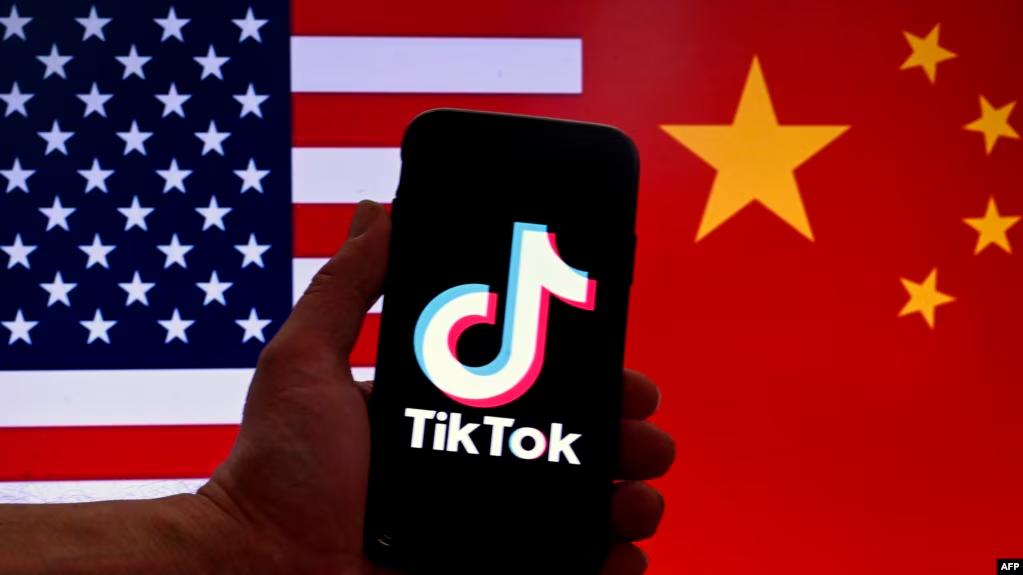
Chinese short-video sharing platform TikTok, whose parent company is China's ByteDance, has challenged in a US court the constitutionality of a new law that could ban its service. The company claims the law is a gross violation of the First Amendment's right to free speech.
The law, known as the Protecting Americans from Foreign Adversary Controlled Applications Act, is a major effort by Sen. Joe Biden President Biden signed it into law, and it has bipartisan support. Under the law, ByteDance has until Jan. 19, 2025, to sell TikTok to a non-Chinese company or it will have to stop doing business in the United States. TikTok and its parent company say the law not only violates the Constitution, but also constitutes a violation of their legitimate rights and interests as the world's leading social media platform. They noted that the law is based on excessive concerns about the potential threat of US citizens using TikTok, while ignoring fundamental rights guaranteed by the US Constitution, including freedom of speech and commerce.
TikTok has hundreds of millions of users worldwide, including a large number in the United States. The company stressed that its operations in the United States comply with all relevant laws and regulations and do not pose any threat to the national security of the United States. TikTok also highlighted its efforts to protect users' privacy and data security. In documents filed with the U.S. Court of Appeals for the District of Columbia Circuit, TikTok strongly disputed the pending law, which would require it to sell itself or cease operations in the United States, saying it would effectively ban its operations.
TikTok presented several reasons why the "qualifying divestitures" referred to in the law are practically impossible. First of all, TikTok, as a world-renowned short video sharing platform, is huge not only in its hundreds of millions of users, but also in the billions of lines of computer code behind it. If TikTok's U.S. operations were to be separated from the global network, the thousands of engineers who developed this code for ByteDance would no longer be able to work on the app, which would undoubtedly have a huge impact on the platform's continued operations. Second, ByteDance stressed that if TikTok's US operations were to be spun off into an island of US-only content, its status as the platform of choice for global advertisers would take a serious hit. TikTok's global network of advertisers relies on its massive user base and highly personalized content-recommendation algorithms, and its commercial value will plummet once that content is curbed. Finally, TikTok noted that its "recommendation engine" - the algorithms that determine how to tailor content to users - was developed in China. Due to complex issues such as technology transfer and intellectual property, this core algorithm cannot simply be sold to foreign companies. This also means that even if TikTok's US business is spun off, its key technology assets cannot be transferred in a real sense. These arguments by TikTok directly challenge the viability of the law to be implemented and underscore its complexity and uniqueness as a global platform.
There has been no clear decision on the legal dispute. However, the incident has attracted widespread attention and discussion, not only concerning the commercial interests of TikTok and ByteDance, but also concerning important issues such as the attitude of the United States toward foreign companies and the protection of constitutional rights. In the future, as the legal process progresses, the development of this incident will continue to receive attention.

Driven by the Trump administration's push to relax financial regulations and the recovery of investment banking business, the market value of the six major banks in the United States has cumulatively increased by approximately 600 billion US dollars by 2025.
Driven by the Trump administration's push to relax financia…
On Christmas evening, U.S. President Trump posted on social…
According to multiple foreign media reports, the recent fin…
The middle class, once regarded as the cornerstone of Ameri…
On December 19th local time, the US military launched a lar…
The Boxing Day sunshine should have cast a false glow of pr…